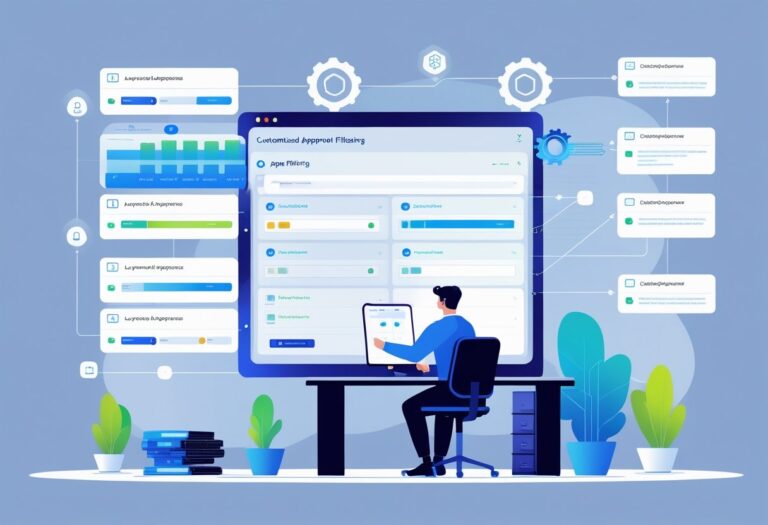전면 익명 환경의 야간 데이터 센터 운영자들 사이에서 확산되는 중독 위기
은폐된 중독 위기: 야간 교대 데이터 센터 운영자의 심리적 위험
12시간 단독 근무, 무제한 인터넷 접속, 상시 감시 부재라는 세 요소가 결합된 야간 데이터 센터 환경은 중독성 있는 디지털 행동이 뿌리내리기 가장 이상적인 조건을 제공한다. 이러한 조건은 점점 더 많은 운영자들이 온라인 도박, 과도한 게임, SNS 중독 등 파괴적 행동 양식에 빠지는 원인으로 작용하고 있다.
핵심 위험 요소
1. 완전한 디지털 익명성과 고립
- 사내 방화벽 뒤에서 작업하면서 디지털 행위는 감시되지 않음
- 프록시, VPN, 내부 자원 활용을 통한 활동 위장 가능
2. 수면 리듬 붕괴와 충동성 증가
- 야간 근무가 생체 리듬을 무너뜨리며 충동 억제력 저하
- 이른 새벽(2~5AM) 시간대는 판단력 저하의 핵심 구간
3. 사회적 단절과 디지털 대체 관계
- 대면 상호작용 부족 → 온라인 공간에서 대리 만족 추구
- 결국 반복적 접속 → 온라인 중독 행동 패턴 형성
업무 성과 및 건강에 미치는 영향
- 조용한 시간대 도박 및 트레이딩 접속 증가
- 근무 중 장시간 온라인 게임 실행
- SNS 과몰입 및 현실 회피
- 주의력 저하로 인한 시스템 관리 오류
- 장기 우울감, 불안, 관계 고립 등 정신 건강 악화
디지털 중독의 기술적 은폐 방식
- 사설 VPN 구축, 유휴 IP 활용을 통한 탐지 회피
- 야간 트래픽 저조 시간대 서버 리소스 남용
- 프록시 리디렉션 및 로그 무력화 스크립트 사용
사이버 보안 위험과 심리 상태의 상관관계
- 중독자는 보안 프로토콜 우회 가능성이 높아짐
- 사회공학 공격, 협박 메일 등에 쉽게 노출
- 부주의, 분노, 피로 누적으로 인한 설정 오류 가능성 증가
예방 및 중재 전략
운영 차원 솔루션
- 야간 교대 순환제 및 교차 인수인계 시스템 도입
- 정기적인 관리자 체크인 및 감시 강화
- 인터넷 사용 로그 감시 시스템 구축 (프라이버시 보장 포함)
개인 복지 차원 접근
- 근무 외 시간의 사회 관계 강화 권장
- 온라인-오프라인 경계 설정 습관화
- 고립 증상 감지 시 정신건강 전문 지원 연계
정신건강 기반 보안 통합 모델
- 심리 상태에 기반한 보안 접근 제한 적용
- 상담 서비스 및 비공개 리포트 채널 제공
- 관리자 대상 중독 및 고립 신호 감지 교육 필수화
환경적 대응 전략
근무 환경 리디자인
- 물리적 웰니스 공간 조성 (명상, 스트레칭 공간 등)
- 고카페인, 각성 보조제 의존 대체 식단 제공
업무 구조 최적화
- 야간 무활동 시간 최소화를 위한 스케줄 재설계
- 다단계 워크플로우 도입 및 상호 피드백 강화
직무 발전 경로 제시
- 운영자 → 보안분석가, 자동화 관리자 등 수직 경로 제안
- 장기 고립 근무가 아닌 성장 기반 경력 구조 설계
중독 예방은 기술과 인간 중심 접근의 통합에서 출발한다
야간 데이터 센터 환경에서 발생하는 디지털 중독 문제는 단순한 개인 습관의 문제가 아니다. 이는 구조적 고립, 기술적 익명성, 생체 리듬 붕괴의 복합적 결과다. 이를 해결하기 위해선 기술적 감시를 넘어, 심리적 안전 기반의 업무 구조 혁신과 전방위 복지 시스템이 병행되어야 한다. 오늘날의 데이터 센터가 진정으로 안전하려면, 기술 인프라뿐만 아니라 사람에 대한 보호도 철저해야 한다.
전면 익명 환경의 야간 데이터 센터 운영자들 사이에서 확산되는 중독 위기
중독 고위험 환경으로서의 구조적 조건
야간 데이터 센터 운영 업무는 일반적인 IT 직무와는 전혀 다른 스트레스 구조를 가진다. 특히 전면 비접촉 환경과 외부 시선의 부재는 자기절제보다는 탐닉을 강화하는 방향으로 심리를 유도한다.
- 감시의 공백: 근무 기록은 남지만 실시간 활동 추적은 미비
- 시공간적 고립: 인간 대 인간 접촉 없이 수 시간 이상 단절된 상태 지속
- 의미의 공허함: 야간근무는 업무 성과 인지 피드백이 지연되며 자기동기 유발에 실패
도박형 행동의 디지털화
온라인 도박, 코인 마진 거래, 카드 게임, 스포츠 배팅 등은 데이터센터 내부에서 “리스크 시뮬레이션”이라는 명분으로 포장되어 접근된다. 그러나 이들은 모두 즉시성 보상 구조를 통해 도파민 회로를 자극하고, 몰입형 중독으로 빠르게 전이된다.
- 보상 간격 불규칙 → 습관 형성 강화
- 야간 루틴과 동기화된 도박 이벤트 집중
- 자금 소진 시 개인 계좌가 아닌 가상 코인으로 지속
실시간 집중력 저하와 운영 리스크
- 시스템 알림 무시 → 서버 경고 누락
- 예약 작업 실패 → 자동화 스케줄 차질
- 보안 로그 위변조 은폐 시도 → 내부 사고 은폐 가능성 증가
이러한 오류는 단순 실수로 처리되지만, 원인은 중독 행동으로 인한 주의 결함·인지 왜곡인 경우가 많다. 특히 교대 마지막 시간대(오전 3~6시)는 판단력 저하와 피로가 누적되는 ‘임계 구간’으로 분류된다.
중독 행동의 은폐 기술과 구조적 악용
- 시스템 로그 직접 삭제 스크립트 실행
- 관리자 권한 사용 이력 조작
- 트래픽 리디렉션을 통해 겉보기 통신량은 동일하게 유지
- 심야 패킷 스니핑으로 외부 VPN 노출 통제
중독자는 자기통제가 약화되기 때문에 오히려 보안에 필요한 자산에 접근하는 방식으로 문제를 해결하려 하고, 이는 정보 유출·내부 사고·데이터 무결성 침해로 이어질 수 있다.
보안과 심리의 이중 구조 통합
- 심리적 상태 기반 접근제어: 근무 중 이상 행동 패턴 감지 시 로그인 권한 제한
- 디지털 피로 점수 기반 UI 변경: 3시간 이상 근무 시 정보 밀도 감소 인터페이스 적용
- 경고 누적 → 5분 강제 이탈 알림: 행동의 감정성, 충동성을 자동 분석해 중단 유도
조직이 취할 수 있는 실제 전략
- 1일 2회 관리자 실명 피드백 체크
- 공식 대기 시간 중 시스템 사용 제한
- 야간 보상 인센티브의 비금전화 (체력 회복, 휴무권, 수면 공간 제공 등)
- 중독 취약 근무자에 대한 비가시적 회복 지원 (심리 상담 연계 등)
장기 예방을 위한 근본적 접근
- 비고립적 구조 재설계: 2인 1조 상시 협업 시스템으로 단독 근무 차단
- 야간업무 커리어 트랙화: 희소 직무가 아닌 역량 기반 성장 시스템으로 설계
- 심야 중독 특화 프로그램 개발: 도박, 게임, SNS 중독 대상 맞춤 CBT, BCT 연계
기술은 보안을 보장할 수 있지만, 인간의 심리적 취약성은 정책으로만 보호된다. 운영자 개인이 아니라, 시스템 구조 전반의 재설계 없이는 디지털 중독은 계속해서 어둠 속에서 진화할 것이다.





